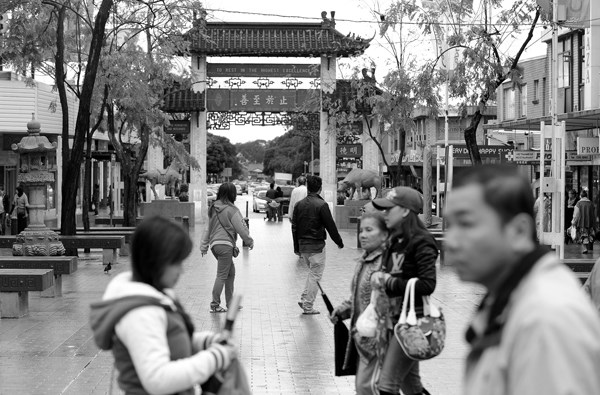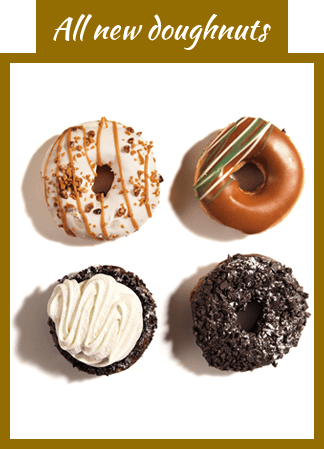The phone call from NSW Health came through on a Sunday afternoon. A couple who’d tested positive for COVID-19 had, in the days prior to their diagnoses, dined at Tan Viet, a Vietnamese restaurant with a 30-year history in Sydney’s south-west.
It was around 4pm, well after the lunch peak, and a couple of hours before the dinner rush. The handful of diners in the restaurant at the time were allowed to finish their meals before staff flipped the “closed” sign on Tan Viet’s doors.
Then, they went straight into “operations mode”. “There was no emotion,” says Jasper Parkes who works in Tan Viet group’s operations team. “It was just a matter of going through the steps that NSW Health required of us.”
By the evening, they had passed on customer and staff logs to assist with contact-tracing efforts. The very next day, Bams Hygiene Management, a cleaning company that’s been hired for a number of COVID-related sanitation jobs, was onsite at the Cabramatta restaurant.
“There are three different tiers of deep-cleaning, and this was the highest: PPE, the masks, the [hazmat] suits, the cleaning of every surface. They cleaned every single page of the menus,” says Lam who works in the operations team with Parkes.
It took six hours to deep-clean the Cabramatta premises. They’re yet to receive the final invoice, but Parkes believes it could total $4500. The Bams website gives a much higher estimate – at least $5600 for a “red”-level cleaning service. As with all restaurant owners who are required by health authorities to deep-clean their premises, the cost is worn by the business. And for Tan Viet, that was just the beginning.
Coronavirus doesn’t discriminate. It can strike regardless of age, gender, and nationality. Members of the public can, without knowing it, be asymptomatic carriers of the virus. The capriciousness of the disease is one of the most frustrating things about Tan Viet’s experience – no matter how many safeguards are put in place, no restaurant is immune.
“We had a COVID-safe plan, we were adhering to it, all staff had been advised how to protect themselves, and if they felt sick they had to stay at home,” says Parkes. “That didn’t stop someone who was an active case from walking into the restaurant.”
As then-recommended by NSW Health guidelines, the restaurant had a COVID-safe business plan in place. (As of Friday 24 July, it’s mandatory for hospitality venues in the state such as cafés, restaurants, pubs, bars and cellar doors to complete a COVID-safe plan and register as a COVID-safe business.) Diners were required to sign in as they entered, hand sanitiser was available for customers and staff, and Vietnamese-English signs communicated good hand hygiene. Tables and chairs were removed from the dining room in line with the four-square-metre density rule.
These stringent hygiene measures were for the safety not just for customers, but employees too. There are staff members – one is in his 70s – who have worked at Tan Viet for years; some have underlying medical conditions.
“These are members of our family, members who are part of management. We don’t muck around in regards to their health and safety,” says Parkes.
As has been the case throughout the health crisis, misinformation spreads just as quickly as the virus itself. After news about Tan Viet broke, members of the public mistakenly held the restaurant and its staff responsible for the outbreak. Some were alarmed by footage of the PPE-suited cleaners at the Cabramatta premises.
“A lot of people think when deep-cleaning happens, [NSW Health] kicks down the doors,” says Lam. “But we gave the cleaners the keys, we walked them through the space. It’s very orderly. It’s not a raid.”
As with any crisis management transparency is important, as is taking control of the narrative. There are two public COVID incidents, on separate days, linked to Tan Viet Cabramatta. Information about these cases is available on the restaurant’s website and social media where they’ve answered queries about their business operations. No, staff are not rotated across the three Tan Viet restaurants in Sydney; yes, all staff have undergone COVID testing. No, none have returned positive results.
They also took the extra step of contracting Bams for a voluntary “preventative clean” of the Tan Viet restaurants in Eastwood and Haymarket. These locations have not been connected to current COVID cases.
But these added precautions also go beyond business PR. “It’s a social issue. It’s a public health issue. It doesn’t help anyone to be hiding anything, especially if you’re doing the right thing,” says Parkes. Lam points out the safety of their own social networks was paramount too. “Friends, family – we wanted to give them that piece of mind.”
Coronavirus. “Ethnic” restaurants. If this all sounds uncomfortably familiar, it’s because we’ve been here before. At the advent of the pandemic, the Chinese-Australian community, as well as the broader dining public, deserted Sydney’s Chinatown over misplaced fears they could contract coronavirus from eating at a Chinese-owned restaurant.
On 26 July, NSW Health announced a COVID-positive couple had dined at Tan Viet Cabramatta and An Restaurant in Bankstown. Both are institutional Vietnamese restaurants, well-known in Sydney’s Vietnamese community, and located in suburbs where the Vietnamese diaspora have settled.
Dr Sukhmani Khorana is a Western Sydney University senior research fellow whose study focuses on food, media and the migrant experience. She says restaurants such as Tan Viet, An Restaurant and Thai Rock face a bigger uphill battle in convincing diners to return.
Australia has a long history where racism, public health and perceptions of immigrant food intertwine, culminating in a narrative that restaurants in “ethnic” enclaves are deemed unsanitary.
“What’s actually happening is that again, these racist assumptions are always dormant, and they come to the surface when incidents like this occur,” she says.
When it comes to repairing the damage caused by being associated with a COVID case, these restaurants are already on the backfoot. The dining public will more easily forgive an inner-city pub compared to a restaurant run by people of colour in the western suburbs.
“Some people might be able to forget more quickly than if it’s a restaurant that carries deep, deep prejudice with it,” she says.
Tan Viet, however, deny they’ve been placed under higher scrutiny. “Our position is have all these restaurants, regardless of who they are, done the right thing?,” says Parkes. “You’re talking about 30 years’ worth of reputation that could go under due to a public health issue. That’s the stance we’re taking. We’re not a victim because we’re an Asian restaurant. That’s not it at all.”
There’s another barrier too. Restaurants associated with a COVID case are not required to hire professional cleaners. Safe Work Australia provides guidelines on DIY deep-cleaning of a business, but the document is five pages long and goes into great detail about bleach-solution ratios, hard versus porous surfaces, and how to sanitise mop heads. (They should be laundered with hot water, in case you’re wondering.)
“To do that yourself, and to do it quickly, would not be very easy. We’re lucky in the operations team – we’ve been educated, we can read and understand [the document]. I do wonder how hard it is for other restaurants who don’t have staff members, or if they’re first-generation migrants,” says Parkes. “In the end, even though we’re proficient [in English], we thought: let’s get a professional in to do this.”
The Lam family’s eldest brother started the original restaurant some 30 years ago. It moved to different shopfronts around Sydney before settling at its current flagship location on Cabramatta’s John Street in 2005. The Eastwood eatery opened in 2012, the Haymarket location in the Darling Square precinct, late last year.
The gà da dòn (crisp chicken) is the signature dish: a piece of chicken Marylands with a snap-crisp skin with juicy flesh, served with the diner’s choice of rice or noodles. How exactly the restaurant achieves the crackling-like exterior while keeping the inside moist is a closely guarded secret.
The restaurant group had only recently emerged from the March lockdown. They closed throughout April, opened for takeaway in May and, as restrictions lifted, welcomed back dine-in customers in June.
It’s no secret the restaurant industry operates on razor-thin margins, and the global pandemic has only tightened the financial bind on these businesses. On one hand they need to stay open so the bills get paid – Jobkeeper doesn’t cover rent.
On the other, there is an inherent risk to staff members’ health and safety. The restaurants caught up in rising COVID cases are not faceless institutions. They are run by people and families who have built up their businesses over the years.
“We forget that restaurants can be the victim as well. We’ve picked up the bill, but we’ve also picked up the bad publicity,” says Parkes. “Restaurants are already in a vulnerable position, and the way that something is reported puts them further down that slope. It could make or break some restaurants.”
All three Tan Viet restaurants remain closed for now. They’re cleared by health authorities to reopen but are choosing to take a wait-and-see approach. At most, Eastwood and Haymarket will return to full service (with social distancing measures in place), while Cabramatta may operate in a takeaway capacity only.
The last few weeks of damage control has taken its toll. Parkes says she’s “numb”. Lam is more circumspect, buoyed by some positive feedback from customers about the restaurant’s communication during this saga.
“I feel confident that we will do ok,” she says. “It always comes back to the quality of the food. Our crispy chicken isn’t something you can cook at home. This is something that is special and people will come out to eat it. That’s what we believe in.”
The writer is not related to the Lam family behind the Tan Viet restaurant group.
For the latest news and updates on COVID-19 in New South Wales, visit nsw.gov.au/covid-19/latest-news-and-updates











